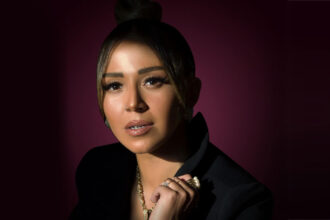In the heart of the Middle East, the United Arab Emirates (UAE) has been steadily rising as a powerhouse in global healthcare. With world-class hospitals, international partnerships, and a government keen on technological advancement, the country’s medical sector has experienced transformative growth in recent years. Among the most remarkable developments has been the evolution of surgical techniques—spearheaded by the UAE’s own doctors and specialists who now lead in robotic surgeries, microsurgery, organ transplants, and AI-assisted medical procedures.
These healthcare professionals—armed with cutting-edge technology, cross-border training, and deep compassion—are not just treating patients but reshaping the future of medicine. This is the story of how UAE doctors are healing with hands that are both skilled and visionary.
A Bold Vision for Healthcare
The UAE’s transformation in the medical sector didn’t happen overnight. With a population comprising diverse cultures and nationalities, the demand for a modern healthcare system was both urgent and complex. Recognizing this, the UAE’s leadership has made consistent investments in public and private health infrastructure.
Key cities like Abu Dhabi and Dubai have become home to hospitals equipped with the latest surgical robots, digital imaging systems, smart operating theatres, and AI-supported diagnostic labs. But what truly drives this transformation is the talent of UAE’s doctors—many of whom were trained at top institutions abroad and have returned to implement their knowledge for the benefit of local and regional patients.
Robotic Surgery: Precision Redefined
Perhaps one of the most compelling shifts in UAE’s surgical landscape is the adoption of robotic-assisted surgery. These techniques allow doctors to perform extremely delicate procedures with a level of precision and minimal invasion that would be difficult to achieve through traditional methods.
Robotic arms are controlled by the surgeon from a console, offering a high-definition 3D view of the operating site and greater control over movement. The result is smaller incisions, less pain, faster healing, and reduced hospital stays for patients. These technologies are now being used in various disciplines, including urology, gynecology, cardiology, and oncology.
Doctors have successfully used robotic systems to conduct kidney transplants, prostate surgeries, and hysterectomies with exceptional outcomes. These innovations are not only improving patient safety but are also attracting patients from across the region, making the UAE a hub for medical tourism.
Microsurgery and Reconstruction: Mastery in Detail
Another major area where UAE doctors are showing global leadership is microsurgery—particularly in trauma, plastic, and reconstructive surgeries. Microsurgery involves operating on structures as small as blood vessels and nerves under a high-powered microscope.
For patients who have suffered severe injuries, burns, or congenital deformities, microsurgery offers life-changing solutions. UAE hospitals have successfully performed complex limb reattachments, nerve grafts, and facial reconstruction procedures using these techniques.
In a recent example, a team of Emirati and expat doctors performed a successful replantation of severed fingers on a construction worker who suffered a workplace injury. Through intricate microvascular connections, the surgical team restored function and aesthetics—proving how skilled UAE surgeons are in high-risk, high-skill procedures.
Organ Transplants: Expanding the Possibilities
The UAE has made significant strides in organ transplantation in recent years. Thanks to progressive healthcare laws, increasing donor awareness, and technological readiness, the country now routinely conducts kidney, liver, and bone marrow transplants.
Doctors in the UAE have pioneered new surgical methods to reduce transplant rejection rates, enhance donor-recipient compatibility, and shorten recovery periods. Minimally invasive procedures are increasingly being used for donor nephrectomies (removal of the donor’s kidney), ensuring quicker recovery for living donors.
In parallel, the UAE’s National Program for Organ Transplantation has empowered hospitals to develop specialized transplant units. These are led by doctors who not only have technical prowess but also the compassion and emotional intelligence necessary to support patients and families through life-altering procedures.
Artificial Intelligence in Surgery: A New Frontier
Artificial Intelligence (AI) is playing a groundbreaking role in shaping the future of surgery in the UAE. From diagnosis to surgical planning and post-operative care, AI tools are transforming how doctors work.
In neurosurgery, AI is helping in the mapping of brain regions before operating on tumors or epilepsy-affected zones. This allows surgeons to preserve cognitive functions like speech and memory. In orthopedic surgery, machine learning algorithms are analyzing patient data to guide the alignment of joints in knee and hip replacements.
Doctors are also using AI-powered imaging to detect anomalies that human eyes might miss, such as microfractures or tiny cancerous nodules. Some hospitals have implemented AI systems that predict surgical outcomes, suggest optimal approaches, and even monitor vital signs in real time to flag any unusual trends.
While machines assist, the decision-making remains firmly in the hands of trained surgeons—who now have access to deeper insights and faster diagnostics than ever before.
Minimally Invasive Techniques: Less is More
Minimally invasive surgeries are a cornerstone of UAE’s modern surgical revolution. Using techniques such as laparoscopy and endoscopy, doctors are now able to access internal organs without making large incisions. This leads to less pain, faster recovery, fewer complications, and smaller scars.
In areas such as bariatric surgery, gallbladder removal, and hernia repair, these methods have become standard practice. Doctors in the UAE have also started applying them to cardiac surgeries, allowing patients to return to their normal lives in a matter of days rather than weeks.
Surgeons emphasize that these procedures require specialized training and excellent hand-eye coordination, as visibility and maneuvering are restricted. Fortunately, the UAE has invested in simulation labs and hands-on fellowship programs to ensure doctors are fully trained before entering the operating theatre.
Pediatric Surgery: Compassion Meets Innovation
The youngest patients often require the most delicate care. In pediatric surgery, UAE doctors have gained recognition for successfully performing complex procedures on infants and children with congenital defects, tumors, or trauma.
Specialized units now handle cases such as cleft lip and palate repair, scoliosis correction, and heart defect closure with impressive success rates. Many of these surgeries require customized instruments and patient-specific planning—a field where UAE doctors are pioneering the use of 3D printing to create exact replicas of organs for pre-surgical practice.
This ensures greater safety during actual procedures and gives families added reassurance that their child is in expert hands. Multidisciplinary teams—including pediatricians, anesthesiologists, and child psychologists—work together to provide holistic care.
Women in Surgery: Breaking Barriers
One of the most inspiring developments in the UAE’s medical journey is the increasing number of female surgeons taking center stage. Traditionally underrepresented in the field, Emirati and expatriate women are now leading departments in orthopedics, gynecology, plastic surgery, and neurosurgery.
These trailblazing professionals are role models for the next generation of doctors. They are also breaking taboos by bringing empathy, cultural understanding, and fresh perspectives to patient care. Many patients—especially women—feel more comfortable under the care of female surgeons, especially in sensitive specialties.
The UAE has responded with scholarship programs, leadership training, and academic support to empower more women to enter and thrive in surgical fields.
Medical Training and Innovation Hubs
To sustain this rapid growth in surgical excellence, the UAE has invested heavily in education and innovation. Medical universities now offer advanced surgical training programs, complete with simulation theatres, robotic labs, and international exchange opportunities.
Hospitals collaborate with academic institutions to research new surgical approaches, publish medical journals, and host global conferences. These efforts ensure that UAE surgeons are always learning, evolving, and contributing to the global medical community.
In many facilities, Emirati residents and interns work under the supervision of seasoned international specialists, gaining hands-on experience while also localizing the best global practices. This cross-pollination of talent strengthens the foundation of UAE’s healthcare system.
Challenges and the Road Ahead
Despite these impressive advancements, challenges remain. High costs of some robotic systems, long training periods, and the need for continual updates in knowledge and technology pose ongoing hurdles. Rural access to high-end surgical care is still limited, though telemedicine is beginning to bridge that gap.
However, the UAE’s long-term vision is clear. With strategic investment, public-private partnerships, and a focus on innovation, the country is well on its way to becoming a global center of excellence in surgery and healthcare.
Doctors across the UAE remain optimistic and motivated. Their daily commitment, coupled with advanced tools and compassionate care, is helping patients return to their lives with dignity and hope.
Conclusion: A Future Carved by Skill and Vision
The phrase “healing hands” has never been more fitting than in the context of UAE’s modern surgeons. These doctors do not merely rely on tradition or textbook knowledge. They embrace change, push boundaries, and integrate science with humanity.
From robotic instruments in operating rooms to AI algorithms supporting decisions, from the steady hands of microsurgeons to the empathetic touch of pediatric doctors—UAE’s medical community is redefining what it means to perform surgery in the 21st century.
As they continue to lead innovative surgical techniques, these doctors are not only improving lives—they are setting new standards for the world to follow. The UAE’s medical success story is not just about infrastructure or equipment. It is about the people—the healers—who turn science into miracles, every single day.









